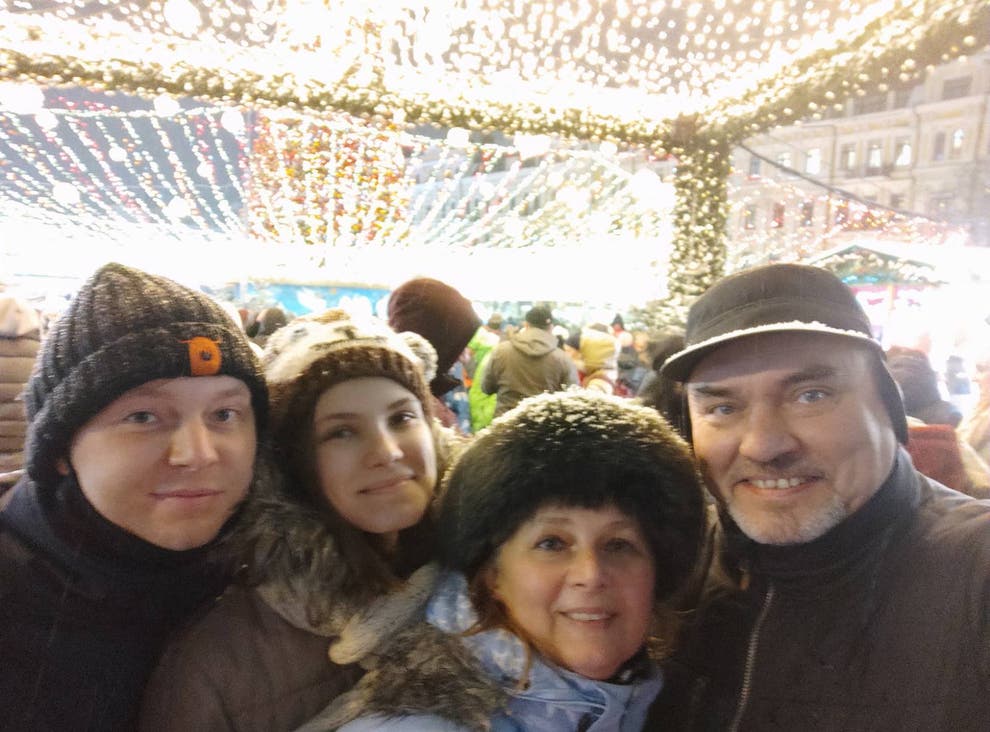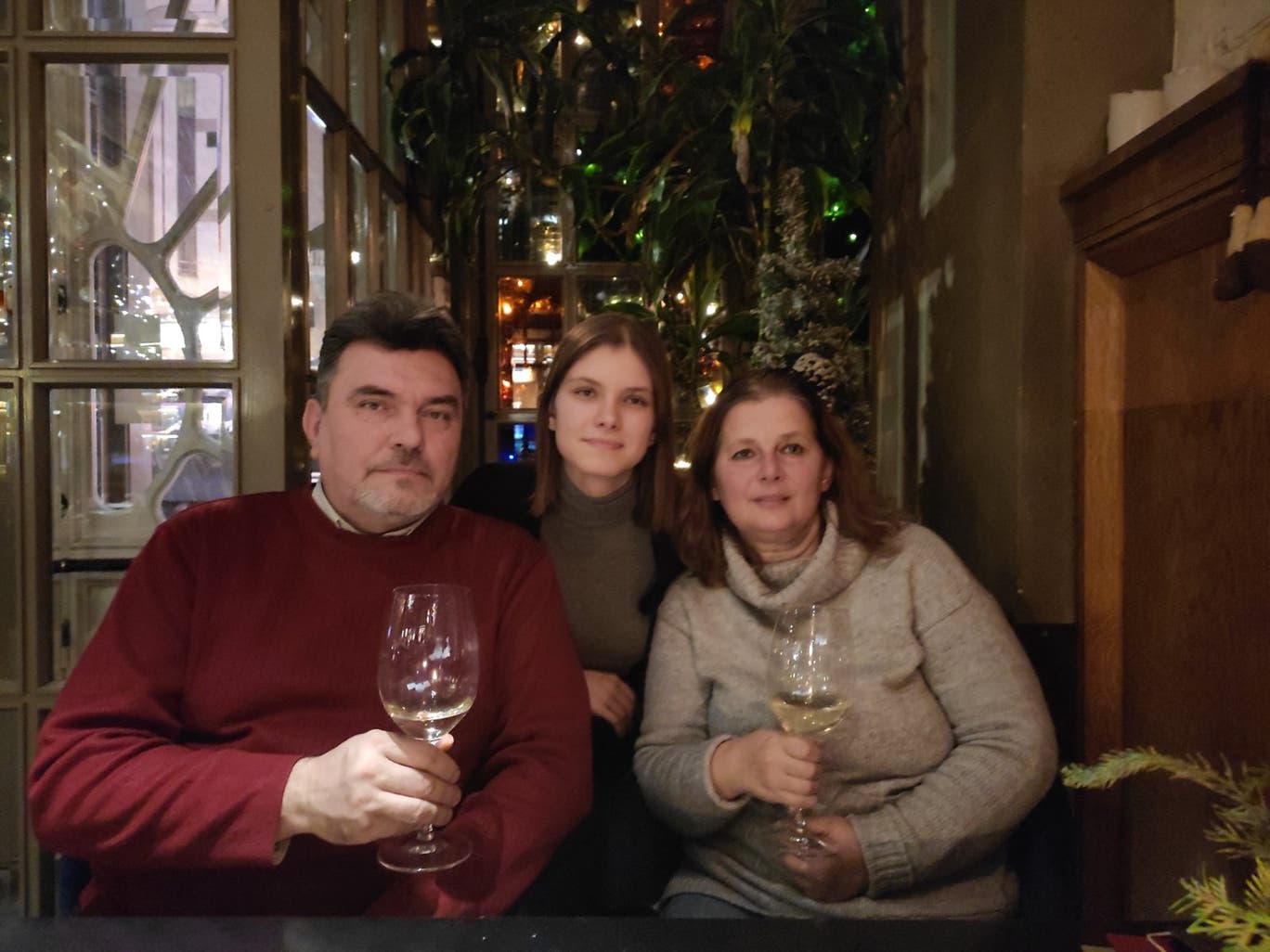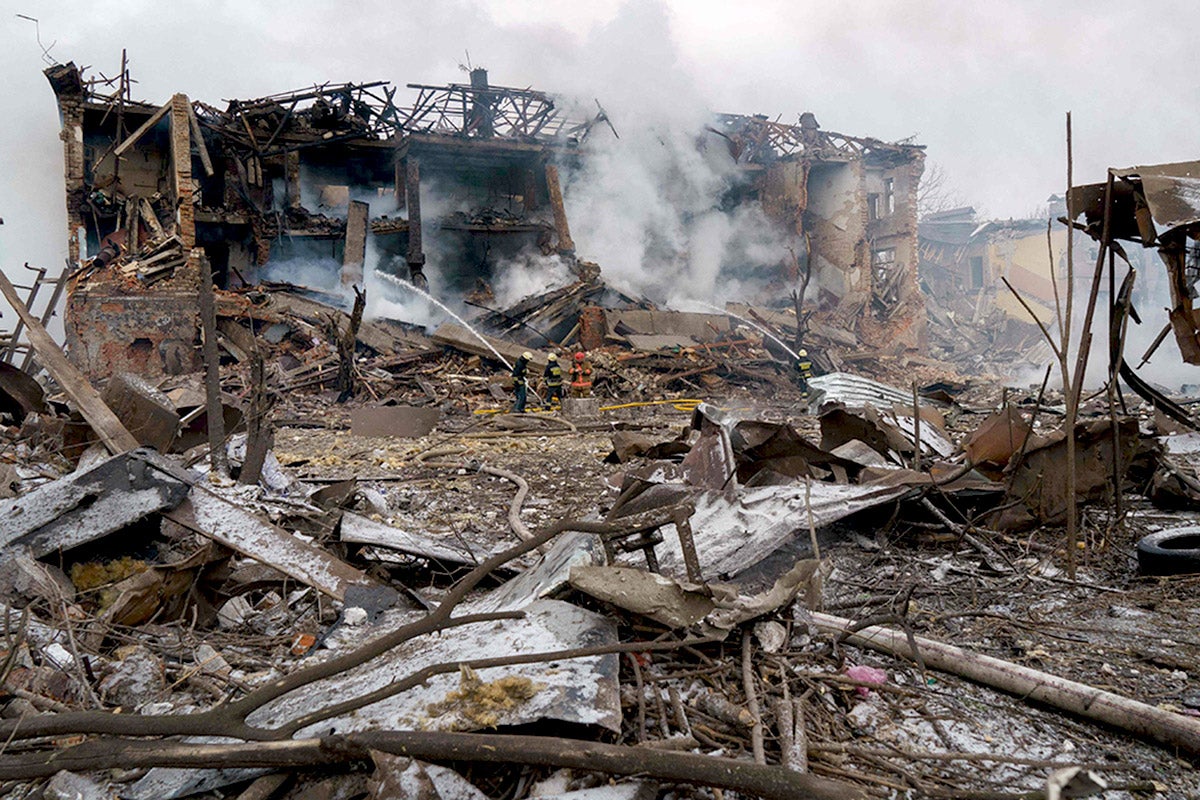Thousands of Ukrainians in UK treated as ‘second-class citizens’ as they are blocked from bringing family
Ministers accused of refusing Ukrainian workers ‘basic level of humanity’ by continuing to exclude them from visa scheme that would allow them to bring their relatives to safety in Britain

Thousands of Ukrainians working in the UK are being treated as “second-class citizens”, charities have warned, as they are blocked from bringing their family members fleeing Russia’s war.
Ministers have been accused of refusing Ukrainian workers a “basic level of humanity” by excluding them from the government’s family visa scheme, designed to enable people escaping the conflict to seek sanctuary with their UK-based relatives.
The scheme, introduced last Friday, requires that the relative sponsoring a Ukrainian refugee must be “settled” in the UK – meaning thousands who are on temporary work visas, as well as students and visitors, are not included.
Ukraine’s ambassador to London told MPs on Wednesday that he planned to ask the home secretary why this cohort was excluded from the scheme.
The following day Priti Patel told the House of Commons that she was “looking at” the issue, but no change has been announced.
Andrii Zharikov, a Ukrainian lecturer at the University of Portsmouth, had hoped when Ms Patel announced the scheme that he would be able to bring his younger sister and mother, who have fled from their hometown Kyiv, to the UK where he can support them.

However, because he is on a work visa and not technically “settled” in Britain, he and his family are not eligible under the scheme.
The 30-year-old, who has lived in the UK for six years, told The Independent: “I struggle to see any rationale behind this policy. I’m working here. I could support my sister and mum if they came here.
“There are other Ukrainians in the UK who may not have the means to support their relatives, but they are still able to bring them here.”
Mr Zharikov’s sister Anna-Maria, 19, is currently staying with friends of his in Amsterdam, while his mother, 53, who left Ukraine after her, leaving her husband to fight, is currently staying with a friend of a friend in Germany.
“The most important thing is that they are safe, but it is disappointing. It seems that my sister and my mum are not welcome here. They’re now thinking about staying together in Germany,” he added.
“I would send money across, but it would be a more straightforward option for them to come here. I work here, pay taxes here. I paid around £8,000 for my work permit, but it seems I don’t get anything back.”

A large number of Ukrainians in the UK are on seasonal worker visas, with almost 20,000 issued to Ukrainians in 2021 alone – two-thirds of all of those issued. Charities say this shows that people from the country are the “backbone” of the UK’s agricultural sector.
Earlier this month, Ms Patel promised to extend their visas until 31 December 2022 – but this leaves them with no right to claim public funds and no ability to bring their loved ones to safety.
Andrei Savitski, a Ukrainian-speaking caseworker at the charity Work Rights Centre, who regularly assists Ukrainian migrants on seasonal worker visas, said: “Migrant workers are the backbone of the UK’s agricultural sector, but are treated as second-class citizens.
“The majority of these visa-holders are Ukrainian. The UK’s agricultural sector is reliant on them, but we’re refusing them this basic level of humanity.”
Around 1,000 Ukrainian refugees have so far arrived in the UK – of more than 20,000 applications submitted. More than 2.5 million people have fled the country as Russia continues its advance.
A government spokesperson said: “A new sponsorship route, which will allow Ukrainians with no family ties to the UK to be sponsored to come here is also being brought forward and all the measures we’ve put in place follow extensive engagement with Ukrainian partners. We will keep our support under constant review.”
The Independent has a proud history of campaigning for the rights of the most vulnerable, and we first ran our Refugees Welcome campaign during the war in Syria in 2015. Now, as we renew our campaign and launch this petition in the wake of the unfolding Ukrainian crisis, we are calling on the government to go further and faster to ensure help is delivered. To find out more about our Refugees Welcome campaign, click here. To sign the petition click here. If you would like to donate then please click here for our GoFundMe page.
Join our commenting forum
Join thought-provoking conversations, follow other Independent readers and see their replies
Comments


Bookmark popover
Removed from bookmarks